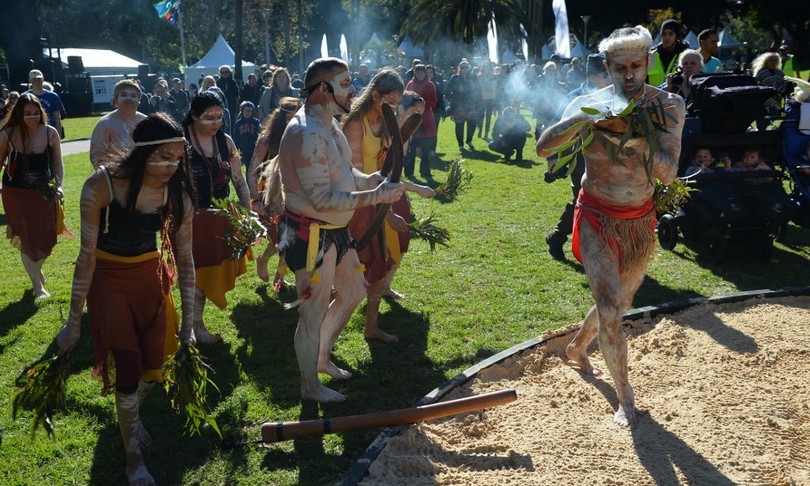Australia to vote in a referendum on Aboriginal rights
Polling stations are open for the historic referendum on the rights and recognition of indigenous peoples. This follows a campaign that exposed deep rifts between the country’s white majority and the descendants of its first inhabitants.
Canberra (AsiaNews/Agencies) – Australia is holding an historic referendum to amend its 1901 constitution in order to formally recognise, according to its proponents, the place of Aborigines in Australian society.
Almost 18 million voters are called to choose between "yes" and the recognition of indigenous peoples in the constitution and the creation of a consultative body, called the "Voice", to vet legislation that affects those communities, and "no", to reject the amendment.
In Australia voting is compulsory; non-voters are subject to an A$ 20 (US$ 12.6) administrative penalty.
The campaign has proven very divisive so far, fuelled by disinformation, propaganda and hate campaigns against the indigenous population, which numbers around 984,000, Aborigines and Torres Strait islanders (3.8 per cent of the Australian population).
To be valid, the proposal must be voted by 50 per cent of the national vote and in at least four out of six Australian states.
The latest polls give the 'no' a clear lead with 60 per cent, against 40 per cent in favour, which stands in contrast to initial polls that indicated a majority support for the recognition of indigenous peoples.
Speaking from the sacred Aboriginal site of Uluru, a large reddish sandstone formation in the centre of Australia, Prime Minister Anthony Albanese tried one more time to convince sceptical voters to recognise indigenous peoples in the constitution.
The centre-left leader has urged his fellow citizens to show "the best of the Australian character", and back the constitutional reform that strengthens Aboriginal rights.
“What I want to see is the best of Australia. We are a great multicultural success story,” Albanese told public broadcaster ABC, with Uluru dominating the background.
Last week, in a meeting with representatives of various religious groups, Albanese presented the project as “a really moving moment of unity. That is the sort of Australia that I want to see, an Australia where we’re defined by our unity, not by our divisions”.
More than two centuries since the start of British colonisation, life expectancy for Australian Aborigines - whose earliest ancestors arrived in the continent at least 60,000 years ago – is eight years lower than that of other Australians; They are on average poorer, sicker, have a greater chance of being incarcerated, and have less access to education.
A group of 250 Aboriginal leaders proposed the creation of a consultative body in 2017. Considered historic in many respects, the Uluru Statement from the Heart was not accepted by everyone.
Some Aborigines fear in fact that, if the "yes" vote wins, their recognition in the constitution could be tantamount to ceding their lands to the Australian government.
Some community leaders have been against the referendum from the start, preferring direct negotiations with Canberra to reach a legally binding agreement for the federal government.
Australia is in fact the only country in the Commonwealth that has never signed a treaty with its indigenous peoples.
Lidia Thorpe, a former spokesperson for the Greens, left the party, which backed the "yes" vote, saying that a treaty should be negotiated first.
23/03/2023 16:26
06/06/2023 17:00
19/02/2024 13:45







.png)










